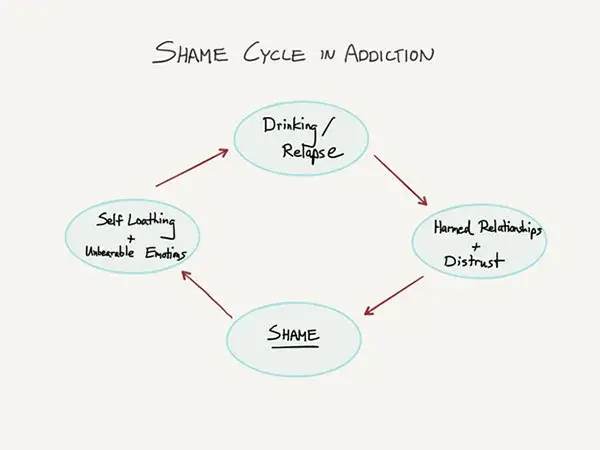PSYCHOTHERAPY
One of the most common things people and families say in the midst of addiction is that they can’t trust one another. This phrase is uttered throughout our CeDAR family program and in our outpatient care as well. The individuals experience frustration, jadedness, and a sense of trauma around the cycle of addiction. The exercise of partitioning trust is incredibly useful for these people, as it makes an insurmountable problem more manageable.
The Trauma of Addiction
When you experience a loved one suffering or have to hear repeated lies about addiction, you experience an emotional rollercoaster. You may feel a sense of hope that your addicted partner is doing better, only to have that hope shattered at the next relapse (or discovering that the substance use has continued all along). This alternating experience of hope and demoralization is taxing on the body and the mind. It sets you up to be incredibly cautious moving forward, and herein lies the breakdown of trust.
Because many addictions can be life-threatening, the trauma of witnessing those addictions is quite real. The intense fear that your loved one (or yourself) may lose a life to drugs or alcohol can prompt what we describe as a sense of a foreshortened future. This basically means that you become more present-day focused. Instead of planning for things, you tend to block out any concept of a future. In this way, when you’re loved one is discussing future plans, you may somewhat tune out.
Deepening the Discussion
The concept of rebuilding trust in addiction recovery as an all-or-none task is too daunting for most people. It puts enormous pressure on the family system to succeed and causes profound frustration. This frustration can lead to no change ever happening, other than continued relapses and discouragement. In fact, the notion of trust as a ‘have it or don’t have it’ paradigm is not psychologically accurate. It is much more realistic to acknowledge in which life areas you hold trust and in which you don’t (and also how much trust for each area). Rebuilding trust doesn’t need to be an all-or-none process.
For example, you may feel you can really trust your partner with physical safety, financial dependability, and work ethic, but that you can’t trust that same person with emotional closeness, understanding, and thoughtfulness. In this example, it would be too simplistic to say you either trusted or didn’t trust this person.
We can also use this strategy of breaking trust into parts to build feasible goals. An example of this would be:
- I would like to trust my spouse more in being kind to our children
You would then rate the trust you currently have in that situation on a 1 to 10 scale and set a target goal for what you’d like that number to be. For instance, say you trust him or her with your children at a 3 out of 10 and would like this to be a 7 out of 10. Now we have something to work towards, and this can lead to hope and effective change through communicating the desires to your partner.
Areas of Trust
What are some example zones or areas of trust as it would apply to a partner relationship?
Examples:
- Sobriety
- Abstaining from drugs
- Following through with things
- Being considerate
- Making good financial decisions
- Being physically safe (i.e. not abusive towards you)
- Respecting extended family members
- Allowing me to have my own independent self
- Being a dedicated parent or caregiver
If the topic of ‘loss of trust’ is part of your discussion these days, build a list specifically for you of the different areas that are valuable to your family system. Then rate the current score for trust. You will likely find differences for the zones, as some people can hold good trust in one area and have minimal trust in another.
Healing from Trauma – Remembering this is a Disease
As you work on some of these trust areas, it is possible for trauma responses to soften. Your system will no longer feel like it is in a crisis. You can begin to imagine a future and move out of such a present-day experience. As long as people feel like they cannot trust and cannot be trusted, a natural progression is towards self-loathing and the shame cycle. This prompts continued drug or alcohol use and a never-ending cycle until families become estranged or people pass away from their addictions.
Breaking out of this cycle happens mainly through actions and acknowledging the disease concept you are working to heal. Over-reliance on words doesn’t seem to work well, as people are skeptical they can trust those words. Through a disease concept, you can feel less defensive of your past. This also moves you away from concepts of “my fault” and other self-critical positions.
Summary and Extending this Topic
This exercise is very helpful as it deepens your discussion around trust in addiction recovery. Through that, you can feel empowered and hopeful that something can be done. This principle is useful for the trust topic and is also applicable to other things as well. If we can go deeper into a problem and break it into components, often it becomes more manageable. You begin to feel that you might not be able to change the whole problem today, but could make some progress in one small area. Those repeated small improvements are what leads to lasting, large-scale change.
Making headway on positive, small things is a powerful way to really change your life.
Other CeDAR articles about Psychotherapy include Attachment in Recovery.

